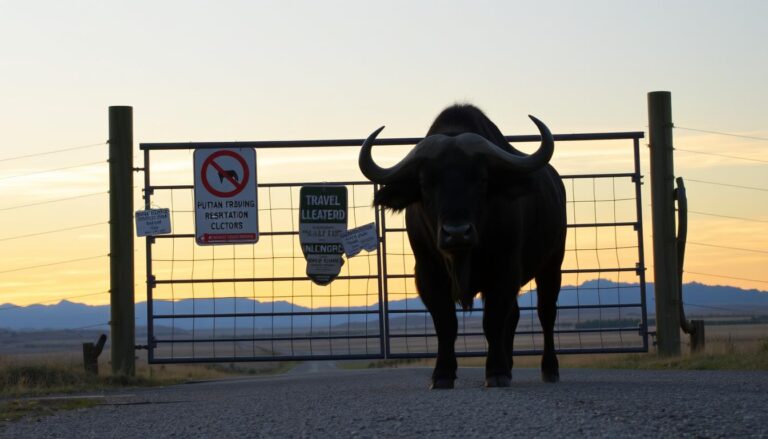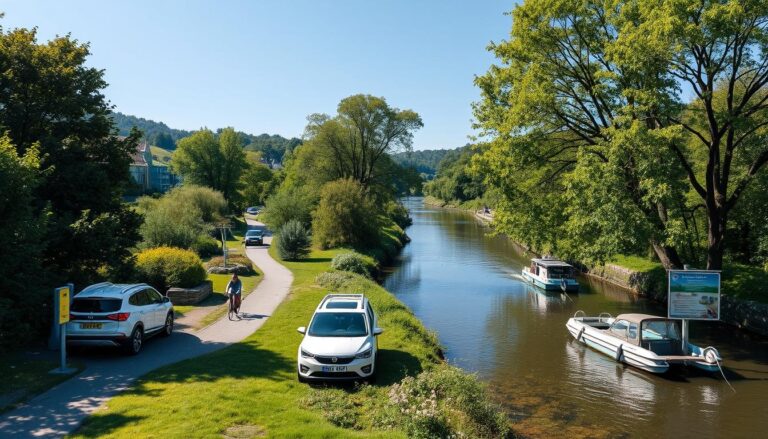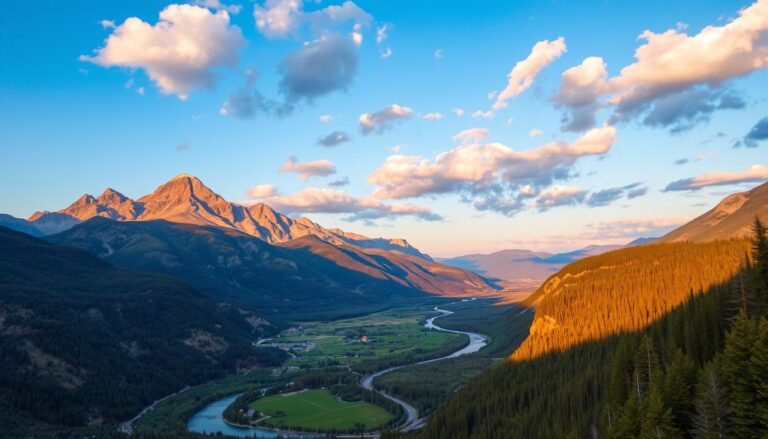national parks travel guide kid
Are you ready to start an amazing journey with your family? Explore the stunning landscapes and varied ecosystems of the United States’ national parks. This guide is your key to a world of wonder and unforgettable moments.
The national parks offer exciting wildlife encounters and hands-on learning. But, where do you start? How can you make sure your family’s adventure is safe, stress-free, and filled with memories?
Table of Contents
Planning Your Family’s National Park Adventure
Going on a national park adventure with your family is rewarding. But, planning is key for a smooth trip. This guide will help you plan and enjoy your family’s national park adventure.
Best Seasons to Visit with Children
The best time to visit national parks with kids depends on the park and your family’s likes. Spring and fall have mild weather and fewer people. Summer is popular but can be hot and crowded.
Think about what you want to see and do. Plan your visit to match your goals.
Essential Items for Family Park Visits
- Comfortable, sturdy shoes for hiking and exploring
- Plenty of water and snacks to keep everyone hydrated and fueled
- Sun protection, such as hats, sunscreen, and sunglasses
- First-aid kit with basic medical supplies
- Binoculars and field guides for wildlife spotting
- Map and compass or a reliable navigation app
- Layers of clothing to accommodate changing weather conditions
Transportation and Accessibility Tips
Many parks offer shuttle services, public transport, and bike rentals. Check the park’s accessibility features for a comfortable visit. Some parks have special parking, trails, and programs for all visitors.
Plan ahead for a family vacation planning experience that’s fun and educational. Don’t forget the kid-friendly camping tips. Get ready for an adventure in America’s national parks!
National Parks Travel Guide Kid: Essential Safety Measures
Going on a family adventure in nature is exciting. But, safety is key, especially on hiking trails for children and family outdoor adventures in national parks. By following important safety tips, you can have a fun trip without worries and make memories that last.
Getting ready is the first step in safety. Learn about the park you’re visiting and its weather, terrain, and dangers. Bring essentials like first-aid kits, sun protection, and the right clothes. This way, your family is ready for anything.
- Familiarize yourself with the park’s terrain and potential hazards
- Pack essential safety gear, including first-aid kits, sun protection, and appropriate clothing
- Ensure everyone in your party is aware of emergency procedures and contact information
Knowing about wildlife is also key. Teach your kids to respect animals and keep a safe distance. Watch for signs of dangerous animals and know how to act if you see one.
| Safety Tip | Importance |
|---|---|
| Maintain a safe distance from wildlife | Protect both you and the animals from potential harm |
| Learn about the park’s emergency procedures | Ensure everyone in your party knows what to do in case of an emergency |
| Stay on designated trails | Avoid getting lost or encountering unexpected hazards |
Lastly, be ready for emergencies. Know the park’s emergency plans and how to contact help. Make sure everyone knows what to do in an emergency, like calling park rangers or finding a first-aid station.
By focusing on safety, you can enjoy the national parks with your family. You’ll make memories that will be treasured forever.
Top Kid-Friendly National Parks Across America
Start an amazing journey with your family to the best national parks for kids. These places have fun learning centers, easy trails, and great spots for seeing wildlife. They are full of wonder and excitement for kids of all ages.
Parks with Interactive Learning Centers
Spark your child’s curiosity at national parks with cool learning centers. At Yellowstone National Park, the Yellowstone Visitor Education Center has hands-on exhibits and multimedia displays. It makes the park’s geological wonders come alive. In Everglades National Park, the Ernest F. Coe Visitor Center has interactive exhibits that show off the wetland’s diverse ecosystems and wildlife.
Parks with Easy Walking Trails
Take a slow walk through nature with your family on trails made for kids. Acadia National Park has the easy Cadillac Mountain South Ridge Trail. It leads to beautiful views without being too hard. In Shenandoah National Park, the Limberlost Trail is gentle and wheelchair-friendly. It takes you through forests and meadows, perfect for exploring.
Parks with Wildlife Viewing Opportunities
Go on a wildlife watching adventure with your kids at parks known for their animals. At Great Smoky Mountains National Park, the Cades Cove Loop Road lets you see black bears, white-tailed deer, and birds from your car. In Glacier National Park, the Going-to-the-Sun Road offers stunning views and chances to see mountain goats, bighorn sheep, and other alpine animals.
“National parks are the best idea we ever had. Absolutely American, absolutely democratic, they reflect us at our best rather than our worst.”
– Wallace Stegner, American environmentalist
Junior Ranger Programs and Educational Activities
Want to explore the outdoors with your kids? Check out the junior ranger programs at national parks across the U.S. These programs teach kids about nature and conservation. They also help them discover America’s beautiful landscapes.
Junior ranger programs include fun activities and tours. They teach about the park’s ecosystem, wildlife, and culture. Kids learn to care for our national parks through these programs.
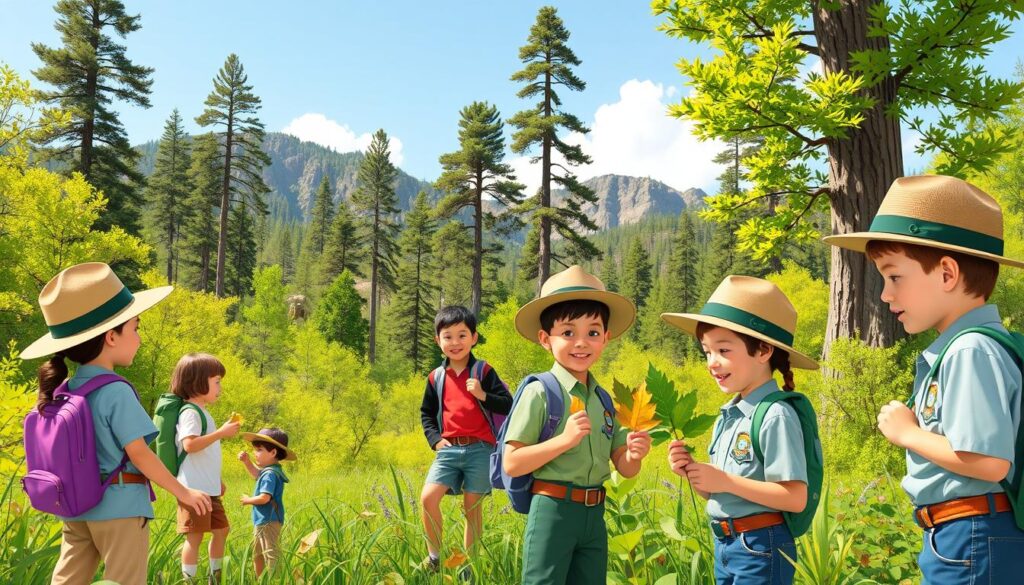
Many national parks also have educational park tours for families. These tours cover the park’s history, geology, and conservation. They help kids appreciate the natural world.
Whether your kids love nature or want to help protect it, these programs are great. They make learning about the outdoors fun and exciting. Start a journey of discovery and spark your child’s love for nature.
- Hands-on activities and interactive learning experiences
- Guided tours that delve into the park’s history and ecology
- Opportunities to earn junior ranger badges and certificates
- Engaging educational materials tailored for young visitors
“The best way to teach children about the environment is to take them to it.”
Family-Friendly Hiking Trails and Nature Walks
Exploring the outdoors with kids is exciting and teaches them a lot. When you plan your national park trip, look for trails and walks that are good for families. These paths are not just beautiful but also great for nature exploration activities.
Beginner-Level Trail Recommendations
For families with young kids or new hikers, here are some easy trails:
- Acadia National Park’s Ocean Path Trail – a flat, 4-mile out-and-back hike with stunning views of the Maine coastline
- Yellowstone National Park’s Fairy Falls Trail – a 5-mile round-trip trek through lush forests and past a majestic waterfall
- Grand Canyon National Park’s Rim Trail – a well-marked, easy-to-navigate path along the South Rim with plenty of rest stops and overlooks
Educational Trail Features
Many national parks have trails made for families. They have interactive parts that make kids curious and love nature more. Look for trails with:
- Interpretive signage highlighting local flora and fauna
- Hands-on discovery stations, such as scavenger hunts or touch-and-feel exhibits
- Audio tours or guided walks led by park rangers
Rest Stops and Viewpoints
Find trails with rest areas, picnic spots, and scenic views. These stops let you rest, eat, and make memories of your outdoor adventure.
| National Park | Recommended Family-Friendly Trail | Distance | Difficulty Level |
|---|---|---|---|
| Yosemite | Mist Trail | 5 miles (round-trip) | Moderate |
| Glacier | Trail of the Cedars | 1 mile (loop) | Easy |
| Zion | Riverside Walk | 2.2 miles (round-trip) | Easy |
Choosing the right hiking trails for children makes your national park visit fun and educational. With some planning, you’ll make memories and teach your kids to love nature.
Wildlife Watching Tips for Young Explorers
Going on a national park adventure with your kids is thrilling. It’s a great way to connect with nature and see wildlife up close. Here are some tips to help your little ones enjoy wildlife watching.
Spot Animals Safely
When you’re in national parks, it’s important to keep a safe distance from wildlife. Teach your kids not to approach or feed animals. This can harm their natural behavior and be dangerous.
Encourage them to use binoculars or spotting scopes. This way, they can see animals up close without disturbing them.
Use Binoculars Effectively
Having good binoculars is key for wildlife watching for kids. Show your kids how to adjust the focus and use the diopter. This ensures they get a clear view.
Tell them to scan the landscape slowly and patiently. This helps them spot animals that are hard to see.
Identify Common Species
Before you go, teach your kids about the animals they might see. This could be deer, elk, bears, or birds. Give them a field guide or download a nature app.
This way, they can recognize and enjoy the different wildlife they see.
By following these tips, you can spark your kids’ curiosity about nature. You’ll create memories and inspire a love for wildlife watching for kids and nature exploration activities.
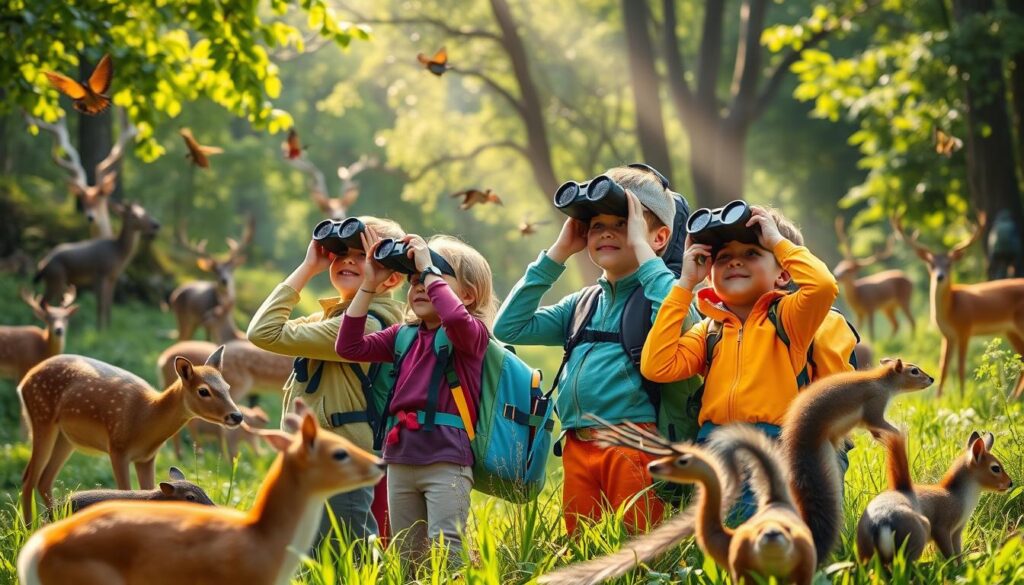
Camping and Accommodation Options for Families
Planning a family vacation to a national park is exciting. The right place to stay can make your trip comfortable and memorable. You can choose from camping in nature or staying in a cozy lodge. America’s national parks offer many kid-friendly options for your family.
Kid-Friendly Campgrounds
Camping is a key part of visiting national parks. Many parks have campgrounds for families. These places have playgrounds, picnic areas, and trails for hiking.
Some campsites even have special programs for kids. This makes sure everyone in the family has fun.
Lodging Alternatives Near Parks
If you prefer a more comfortable stay, there are many options near national parks. You can find cozy cabins, vacation rentals, and family-friendly hotels. These places offer amenities like pools and playgrounds.
When looking for a place to stay, think about how close it is to the park. Also, consider what your family needs and likes.
What to Pack for Overnight Stays
- Comfortable, weather-appropriate clothing
- Sturdy, broken-in hiking boots or shoes
- Sleeping bags and pads (for camping)
- Portable chargers and electronics
- First-aid kit
- Flashlights or headlamps
- Insect repellent and sunscreen
- Snacks and water bottles
- Games, books, and other entertainment for children
Plan your stay and pack the right things for a great kid-friendly camping trip. Your family vacation planning to a national park will be smooth and fun.
Park Rangers’ Tips for Young Visitors
Start an amazing national park adventure with your family. Learn from park rangers who love nature. They want to help you enjoy your visit and love the outdoors.
Join educational tours led by rangers. They teach about the park’s history, animals, and plants. Kids can also join junior ranger programs. These programs are fun and teach kids to care for nature.
Park rangers are excited to share their knowledge. Ask them questions and listen to their stories. They will show you the park’s secrets and help you make unforgettable memories.


